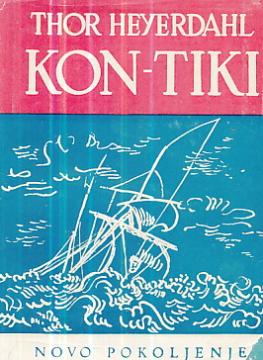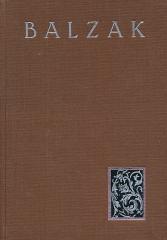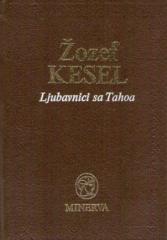
Kon-Tiki
The Kon-Tiki Expedition was a raft trip across the Pacific Ocean from South America to the Polynesian islands, led by Norwegian explorer and writer Thor Heyerdahl.
The raft was named Kon-Tiki after the Inca god Viracocha, for whom "Kon-Tiki" was claimed to be an old name. Heyerdahl's book about the expedition is called "Kon-Tiki Expedition: Rafting Across the South Seas". A documentary film from 1950 won the Oscar for the best documentary film, and in 2012 a feature film was shot that was nominated for the Oscar for the best foreign film.
The Kon-Tiki expedition was financed by private loans, along with equipment donations from the US Army. Heyerdahl and a small team traveled to Peru, where, with the help of a shipyard provided by the Peruvian authorities, they built a raft from balsa logs and other indigenous materials in the style noted by the Spanish conquistadors. The journey began on April 28, 1947. Heyerdahl and five companions rafted for 101 days over 6,900 km (4,300 miles) across the Pacific Ocean before crashing into a reef off Raroia in the Tuamotus on August 7, 1947. The crew successfully made it to land and everyone returned safely. Heyerdahl believed that people from South America could have reached Polynesia in pre-Columbian times. His goal in organizing the Kon-Tiki expedition was to show that there were no technical reasons preventing them from doing so, using only the materials and technologies available to the people of the time. Although the expedition used some modern equipment, such as radios, clocks, maps, a sextant and metal knives, Heyerdahl claimed that these were secondary elements to prove that the raft alone could make the journey. This idea received support from a statistical analysis of the genetic evidence of contact between South America and Polynesia. However, Heyerdahl's complete hypothesis of the South American origin of the Polynesian peoples is largely rejected today. Most of the archaeological, linguistic, cultural and genetic evidence supports a western origin of Polynesians, from Southeast Asia, using sophisticated multihull vessel technologies and navigational techniques during the Austronesian expansion. There is evidence of some gene flow from South America to Easter Island. In 2020, some researchers published a study.
No copies available
The last copy was sold recently.





